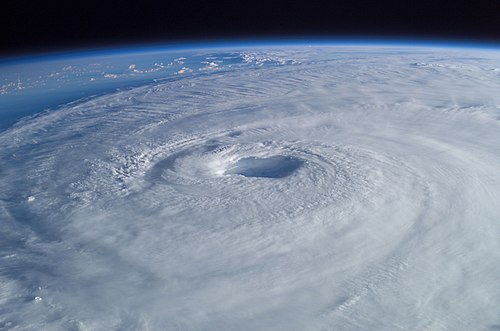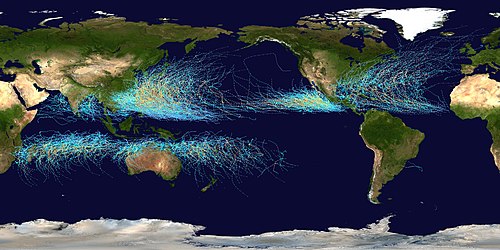Tsunaminoun
A very large and destructive wave, generally caused by a tremendous disturbance in the ocean, such as an undersea earthquake or volcanic eruption. Tsunami are usually a series of waves, or wave train.
Tsunaminoun
(figurative) A large and generally unstoppable surge.
Tsunaminoun
a huge destructive wave (especially one caused by an earthquake)
Tsunaminoun
a long, high sea wave caused by an earthquake or other disturbance
Tsunaminoun
an arrival or occurrence of something in overwhelming quantities or amounts
Tsunami
A tsunami ( (t)soo-NAH-mee, (t)suu-; from Japanese: 津波, lit. 'harbour wave', pronounced [tsɯnami]) is a series of waves in a water body caused by the displacement of a large volume of water, generally in an ocean or a large lake. Earthquakes, volcanic eruptions and other underwater explosions (including detonations, landslides, glacier calvings, meteorite impacts and other disturbances) above or below water all have the potential to generate a tsunami.
Hurricanenoun
A severe tropical cyclone in the North Atlantic Ocean, Caribbean Sea, Gulf of Mexico, or in the eastern North Pacific off the west coast of Mexico, with winds of 119 km/h (74 miles per hour) or greater accompanied by rain, lightning, and thunder that sometimes moves into temperate latitudes.
Hurricanenoun
(meteorology) a wind scale for quite strong wind, stronger than a storm
Hurricanenoun
"full—triple-full—full" – an acrobatic maneuver consisting of three flips and five twists, with one twist on the first flip, three twists on the second flip, one twist on the third flip
Hurricanenoun
A violent storm, characterized by extreme fury and sudden changes of the wind, and generally accompanied by rain, thunder, and lightning; - especially prevalent in the East and West Indies. Also used figuratively.
Hurricanenoun
a severe tropical cyclone usually with heavy rains and winds moving a 73-136 knots (12 on the Beaufort scale)






























